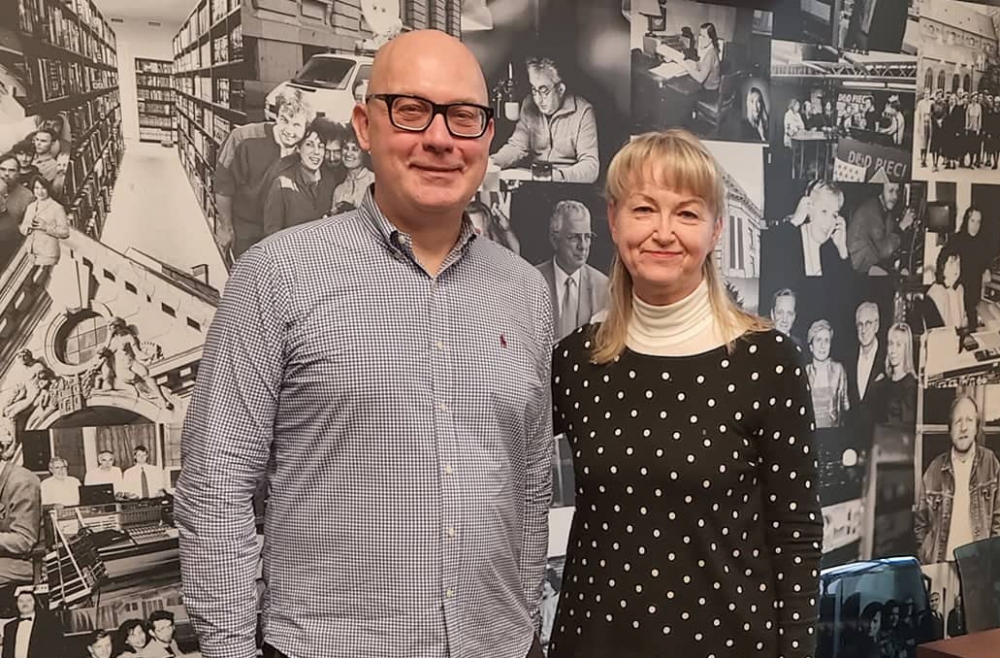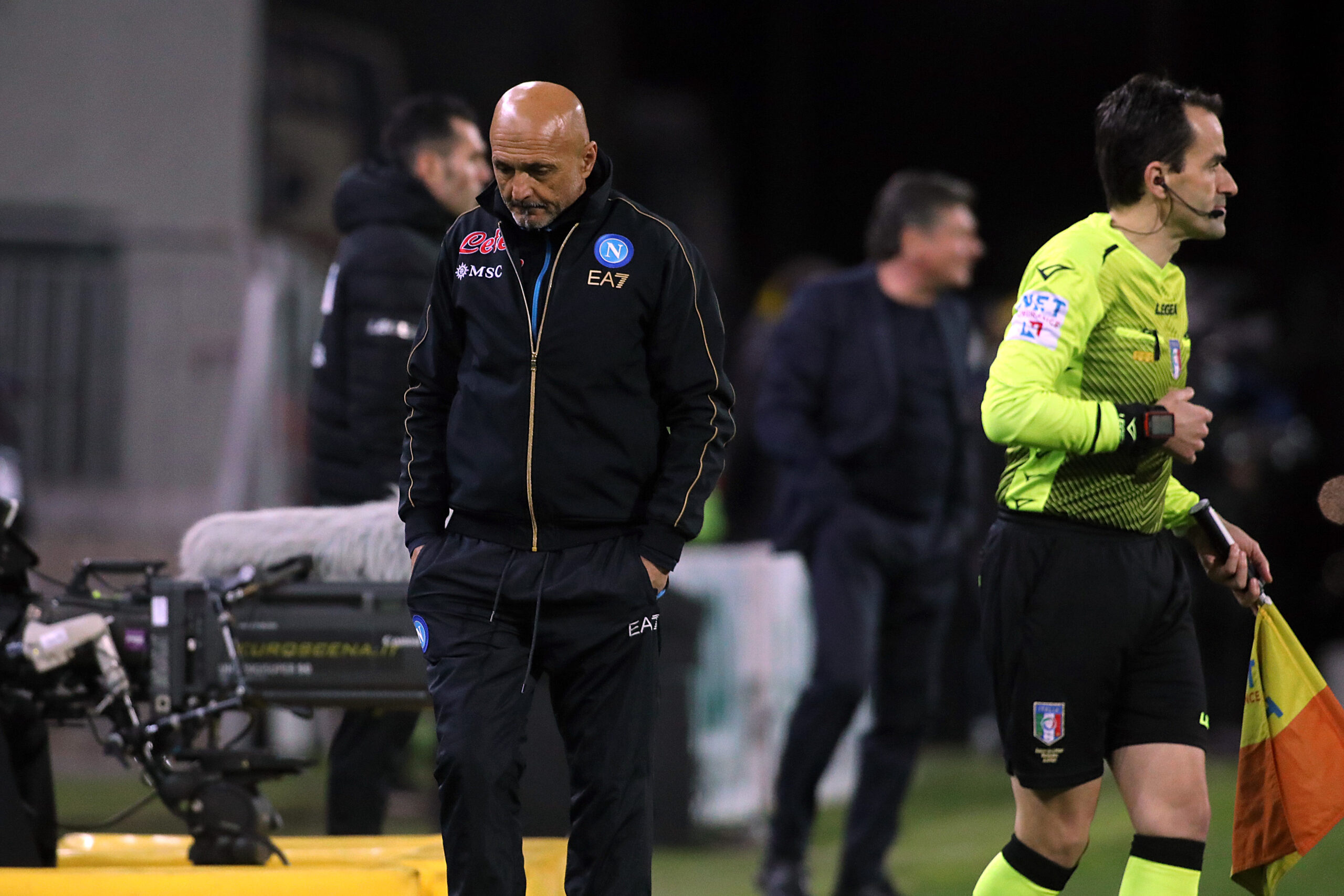In the “Klasikas” studio we meet with a film producer and a journalist Gintu Grūbi, to talk about movies, journalism and the world today …
Gunda Vaivode: Events in Ukraine do not lead us to entertainment in any way, but we also need an island of peace. Coming to work this morning, it felt a little different, and it inadvertently reminded me of what it was like thirty years ago during the barricades. Do you have any similarities with this situation?
Gints Grūbe: Of course, there are some kind of bodily memories, but thinking about what you say about the morning… It’s quite significant how the journalists of the TV channel “Dozhj” or “Echo of Moscow” start every morning – they say not “Good morning! “but -” The day is not good “. In that sense, the feeling continues – it’s just another morning. And that bodily feeling … I inadvertently remembered that
the first week of journalism in my life was the coup week of august 1991. I started working for the People’s Front newspaper “Atmoda”, and the August coup began. And suddenly it turned out that these feelings are somewhere deep in the cells of the body and live!
As we know, the coup ended in our favor and it is likely that in this case, too, the cells will not lie and the end will be on our side. But well – the question of how long it will take and at what point. But when the son comes from school and asks what is with those Ukrainian students to whom we wrote a letter last year… These are questions that are not easy to answer.
Of course, time has passed. Thirty years ago we were much younger ourselves and somehow we perceived those things differently. Maybe atypical for the situation, but from our barricades I remembered the Song Festival feeling … That we were here, looking for music, and everything was terribly high, regardless of what was going on outside. When I went home yesterday after work and had this concert at the Congress House, the feeling came back. Say that you also took your Norwegian colleagues there.
Of course,
at first it seemed – well, a concert, some singing at a time when something like this is happening in Ukraine … But it seems to me that it was a very right choice, because any reaction, any kind of expression that reassures us and helps us gather, is valid.
And our musical experience of the late eighties revolution is exactly the same cellular memory we have and it works. This view was very strong. This morning I passed the muddy place around the Russian embassy – it was such silvery mud.
You used to call your city Berlin. But you have also been to Leipzig.
Yes, we were in Leipzig with Dāvi Sīmanis when our documentary “The Sound of the World” premiered at the Leipzig Documentary Film Festival. The film is the story of the choir “While …” and their songs of the Sun. A very pleasant experience. It seems to have been one of the first documentary film festivals I attended. Andris Nelson was not a conductor in Leipzig at the time, but he could already guess that he would play here someday. But Berlin is the city of my studies, with which I also have musical memories. As Germany and Berlin are very democratic towards students, I tried not to miss any of the “Berlin Philharmonic” concerts during my studies.
Andris Nelson was still a young student, an apprentice who drove to Marisa Janson, and from time to time he came to my apartment. It was an experience that will be remembered for a lifetime.
Even now, many Latvian students are there and studying art at universities – it is very gratifying. You mentioned Andrew Nelson – he has a concert in Boston tonight with his other orchestra, the Boston Symphony Orchestra, and Baiba Skridi: they will play Perth’s “Cantus” in memory of Britten and Shostakovich’s First Violin Concerto. However, Valery Gergiev and soloist Denis Matsewev have been removed from conducting the Vienna Philharmonic in protest against supporters of Putin’s regime in Carnegie Hall in New York. Yesterday, in Der Spiegel, we read that Munich Mayor Dieter Reiter had threatened Gergiev – if he did not take a clear stand against the war in Ukraine by Monday, he would have to resign as head of the Munich Philharmonic, as Kiev is known to be the twin city of Munich. Gint, how do you see the gears of art, the world and politics? There are so many different views. Some say that there is nothing to confuse, while others see the most direct mechanism for propaganda.
There are no questions or doubts – any position or attitude is relevant. No artist should be silent! If someone does not express their opinion, it is quite a deplorable act, because I think –
what is helping now – and also helping the people who work in Russia in the field of culture and whom I know – is important for them to hear this courage from both outside Russia and in Russia itself. And unfortunately we don’t hear it that much right now,
because there is obviously both fear or some sense of conjuncture about how this wheel of history will end. But we already know that it will end on our side. That is why I agree with all those who have already expressed their views. Boris Akunin, Boris Grebenshchikov, for example, have expressed a very specific attitude and all the respect for these people, because it is the courage to live in Russia today and speak out against it. And with all due respect to them. I think that the attitude of our artists is also important.
This is prize time. The Grand Music Awards will be presented on March 8, the annual recording award “Golden Microphone” tonight, “Kristaps the Great” tomorrow, but a week ago you as a producer and one of the directors received the “Kilograms of Culture” award for the multi-series film “Emily”. Queen of the Latvian Press “. And the spectators voted for it in the final! Was it a welcome or a surprise?
Of course, this was unexpected, because it is a series – it is neither a feature film nor a documentary. It is an unprecedented experience for us and a very big thank you to the viewers who voted.
But viewers have not even seen it on television. The premiere is yet to come.
Yes, but we showed this movie both in the cinema and on the Tet platform. It seems that it will appear on television in the middle of March and then those who have not seen this film will be able to see it.
Who has the idea to bring this topic to life right now?
As they say, ideas are somewhere in the air, and then at some point someone grabs them, and I think that was the case. We live in the age of seriality, and if we think about what the great stories of the last century are like, then it is clear that the 20s and 30s, the press and the fate of Emilija Benjamiņa are such a great story that can tell a certain stage in Latvian history. .
And if some of the new generation of cinematographers are ironic and ask how many films about history can be made, I think this time is the answer to why we need to make films about history and what it means to revive the experience we, our parents or grandparents have had. .
You were four directors – Andis Mizišs, Kristīne Želve, Dāvis Sīmanis and yourself. Were you easy to split series and time periods between you?
It was very collegial. As producers, we quickly divided the stories that someone tells – where is the story of the strong woman, where is the power struggle, where is the coup. These are topics that have not been so common in Latvian cinema yet – in that sense they are new. Everything was somehow very organic. Dāvis Sīmanis had to tell the final series – it seemed very logical. So there was no struggle – there was an unprecedented collegiality with each other, where no one tried to tell the other that they had to go in a completely different direction. It was a conciliation.
But you are already not only one of the directors of the film, but together with Inesa Boku-Grūbi – also the producer of this film. Referring to your Croatian friends, you yourself have been a little ironic – that the producer has such an experience that he can also be entrusted with the organization of weddings and funerals, because the number of people is very, very large. What exactly is the work of a producer? Can you sketch it out a bit?
On such a stereotypical level, everyone thinks that a producer is just an accountant who works with an excel, but in reality it is a “gesamtkunstwerk” – a creation from idea to viewer. You are responsible at all stages.
And that’s the beautiful side of the profession – I think it’s very important to think about the viewer, not the very selfishness of just saying that my films are only for the sake of art.
It is similar to what Hitchcock said – that it is important for him to imagine that there are two thousand more people sitting in each chair behind each cinema chair. It’s a feeling we agree with Ines – it’s a shared production feeling that we really want to watch movies. And then you have to work on it. It’s a very branched job – working on an idea. The team we managed to build was very cohesive and we are already working on a new idea. We saved the core of the team because we realized that it could not be easily blown away.
You are in the list of nominees in the category “Best Multi-Series Film” – together with Alvis Hermanis’ “Agency” and directors Māra Lagzdiņa and Una Rozenbauma’s “Stay Negative”. In total, you have ten “Great Kristaps” nominations. With what anxiety are you waiting for tomorrow? And do you have any expectations about any nominations?
It seems to me that awarding culture is a very subjective process – the biggest reward is that your work is viewed by the viewer.
Of course, any kind of recognition is pleasant – it is very important for any creative person, but, as we know, it is not possible to evaluate creative work according to any objective criteria. No such criteria are written anywhere.
And from that point of view, many thanks to the excellent team, which during the pandemic, when no vaccine had been invented, no one knew what would happen and all the theaters were closed, we did it all in those fifty days. It is unique. Thanks to all the actors, all the directors and cameramen for that. These nominations are thanks to them for that.
The full text of the conversation will soon be available on the lsm.lv portal.
–
Latvijas Radio invites to express its opinion on what is heard in the program and supports the discussion among the listeners, however, reserves the right to delete comments that violate the boundaries of dignified attitude and ethical conduct.


